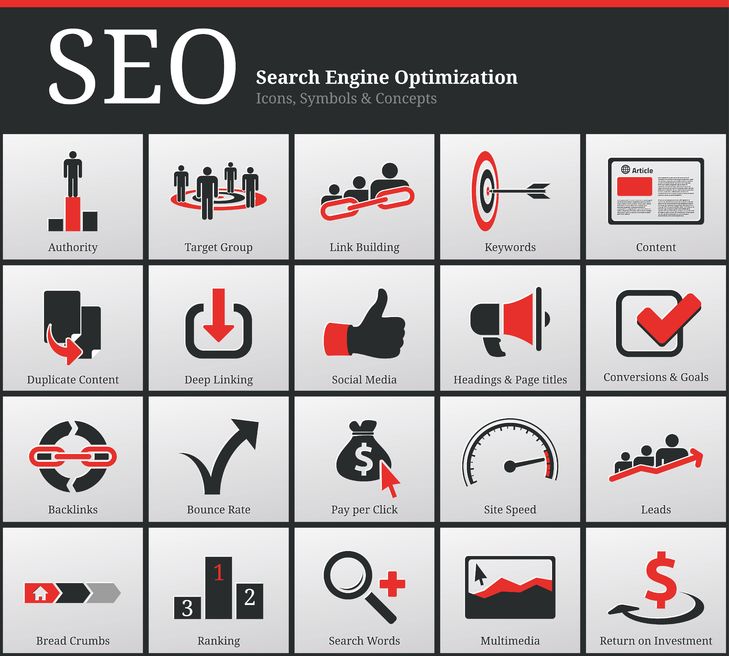What is a backlink?
Before we begin our discussion of the pros and cons of Backlinks, lets first define what a backlink is. A backlink is an incoming hyperlink from one web page to another website. In other words, a backlink is a link from another site back to your site. Some industry experts estimate backlinks may account for as much as 80 percent of the weight that search engine ranking algorithms give websites, so cultivating high quality backlinks should be part of your internet marketing strategy.
Two Types of Backlinks
 To illustrate, its a popularity contest of sorts. If you are friends with trusted, important people, then you must be trustworthy and important. And there are two types of friends, true, reliable friends and poor quality friends that can be bought.
To illustrate, its a popularity contest of sorts. If you are friends with trusted, important people, then you must be trustworthy and important. And there are two types of friends, true, reliable friends and poor quality friends that can be bought.
So applying this back to backlinks, if Google sees that your site is being reference by trusted sites, your website must also be trusted and credible. And there are two types of backlinks: (1) good quality backlinks that help your overall SEO strategy and (2) bad backlinks that are bought, spammy and are irrelevant to your website, which will hurt you because Google will penalize you in regards to your page ranking.
How many Backlinks should you have?
This is a numbers game as well; if a large number of sites link to your site, then you rank higher on organic searches. But just as you don’t want to pay for friendships, you never ever want to pay for backlinks. If Google sees that your backlinks are from poor quality, backlink farms, link schemes and there is a sudden, rapid mass production of backlinks in a short period of time, it will hurt your page ranking.
Search engines (like Google) place a heavy emphasis on ranking your site based on the number of websites that are referencing (or linking back) to your website. So Google’s logic is pretty simple, if other trusted sites are referencing your site than it must be a relevant and trusted site with trusted content.
So be consistent with your backlinking strategy, so each week or month you are consistently adding positive backlinks to your web presence. This should grow over time slowly, because if Google sees that you have gone from 35 backlinks one day to 3500 the next, they will suspect you are using “paid backlinks” and you will be penalized. And remember ten reliable and trusted backlinks are better than a hundred questionable ones.
So how do you create new, trusted and relevant backlinks to your website?
 Join local trusted organizations that will list your website on their directory. Great examples
Join local trusted organizations that will list your website on their directory. Great examples
are the Better Business Bureau, your local Chamber of Commerce, Business organization and networking groups, Industry related trade organizations (like HBA, WOW, PBA, NAR, etc.), and non-profits that you serve on the board of or offer sponsorships.- Industry specific review sites like Angie’s List, Yelp, Urbanspoon, TripAdvisor, MerchantCircle, Epinions, and more.
- Search Engine business listings that not only help your SEO, show off your reviews, and keywords about your business, they also provide great backlinks: Google Places for Business, Bing Places for Business and Yahoo Local Listing.
- Press releases are good but only if they’re genuine. Ezine Articles and press releases have long been utilized by SEO professionals for building backlinks, but as of July 2013, “news broke that links should be no followed in press releases. Right around this same time, Google also mentioned that if you are guest blogging for links this could be a violation of their guidelines.” So if you have company news or a press release, send to your local newspapers or industry-related organizational sites, but don’t do a mass submission to Ezine sites as they may be considered ‘bad links’.
- If still unsure, verify that the link is an organic backlink is from a trusted source, that has (1) Relevance, (2) Authority & Influence, and (3) Diversity, which is a fundamental variable in organic search algorithms and organic search strategies and should be ignored. A link from a relevant site within your industry also will get more weight.
Do Social Media platforms provide Good Backlinks?
Yes and no. Most social media sites are a great way to engage your audience, introduce your business, develop leads and provide links to your website and blog that users will click on to find more information about your product or services. But in regards to search engine optimization, most social media sites have put a small piece of code called ‘the no follow’ tag into most areas of their site. As the name implies, the ‘no follow’ tells search engines: ‘if someone tries to build backlinks to their site from here, don’t follow it. Instead, ignore it’.
“This was and is done to prevent spammers. If you didn’t have the ‘no-follow’ tag, spammers would create thousands of Facebook profiles, LinkedIn profiles, and YouTube accounts just to link those sites back to their website.”* There are exceptions to this rule though: Google Places, Google+ profiles, Yelp, LinkedIn company profiles, Youtube channels (YouTube gives you a link in your profile that is devoid of no – follow).
That does not mean you should not be implement social media marketing as part of your internet marketing strategy, it just means you will have to find quality backlinks elsewhere.
If you have any questions or need help with your backlinking strategy, please email me.






